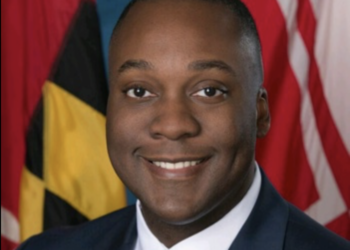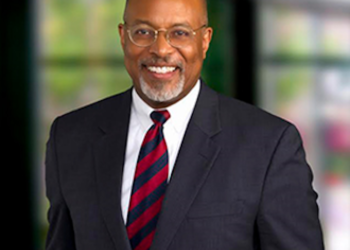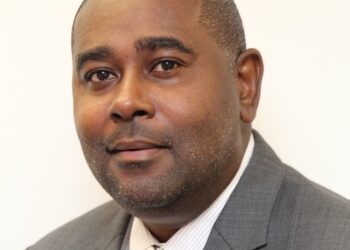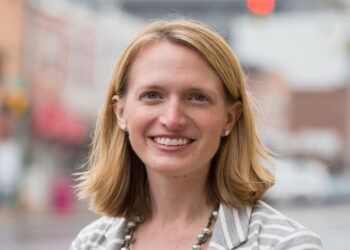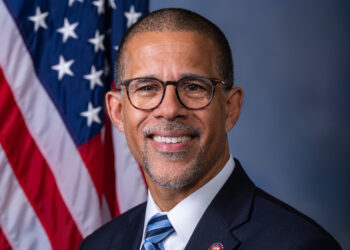
Title:
Director, DC Department of General Services (DGS)
Industry:
Public Administration

A: Since the beginning of the public health emergency, I think we’ve all experienced a modified routine. Before, my day would start at 5:30 a.m. with a check of emails and texts. Now, I share a morning coffee with my wife before the business, and now school, day begins for our entire family. After my coffee, I check in with my Program and Operations Manager – and my work from home day begins.

A: I have the unique opportunity to help build our communities for generations to come. Whether it be a school, a government building, a park or recreational center, my job is to build, maintain and sustain all the properties that are owned by the District of Columbia government. It’s a monumental job that includes managing more than 157 million square feet of land and 35.7 million square feet of state-of-the-art facilities. But I have a fantastic team of more than 700 employees from concentrations including architecture and engineering to building maintenance. The most important aspect of my job is to listen to our client agencies such as the District of Columbia Public Schools (DCPS) and the Department of Parks and Recreation (DPR) and support their operational needs for today and the future. I also listen to our residents to learn how they desire to sustain our communities for generations to come. At DGS, we often must be nimble enough to strategically use our resources in creative ways. For example, being an urban city, DC will be using municipal building rooftops for solar panel installations to realize more cost savings. I’m excited that Mayor Muriel Bowser is broadening that approach by using actual real estate assets, or buildings, in order to drive economic vitality so that more residents and small businesses can have a pathway to the middle class. A perfect example of this is with her recent decision to move our headquarters to an under-served section of the District in Ward 7. A new headquarters building there will draw more and much-needed business to that area.

A: The last book I read, was ‘Black Labor, White Wealth: The Search for Power and Economic Justice’ by Dr. Claud Anderson. It gave me a deeper perspective of the systemic racism that is embedded in our nation’s history. As an African American male raising a son, it’s essential that I learn the business of becoming wealthy, despite the traps and illusions that were put in place to block the successes of people who look like me. We have to share this knowledge with our young people so that they know, despite the obstacles and adversity, that they can be successful.

A: This is a good question especially since we’re doing this interview during the most prolific incident in generations. One thing that surprised me about working remotely has been the time saved by reducing commutes and increasing accessibility. This allows us to be more nimble. The business world is moving to a virtual environment which has a significant impact on the quality of life of employees and residents. I expect in the near future, government organizations will move to more virtual spaces for the employees and residents they serve.

A: I get out, I walk, and I observe infrastructure and operation. There’s not a day that I don’t do this. There are some areas where we can always do better but there is no better way to ‘touch’ a facility than by walking it. As a native Washingtonian, the District of Columbia and its properties are personal to me. What gets me going is getting out in the community to see where we’re heading and what we need to improve. This is my city, this my children’s city and this will hopefully be my future grandchildren’s city.

A: I think one of the most important things that I learned from others and through experience is the need for effective communication – it’s the key to every relationship. The reality is – from the executive level to entry-level – wherever you fall in that spectrum, things will happen that are good and bad. You must establish trust, honesty and workplace community. In doing so, you should be able to resolve issues quickly or simply be able to say, ‘let’s agree to disagree.’ By embracing open communication on the front end, you avoid hard feelings and potential confusion. Communication is key.
____________
About Keith A. Anderson:
Keith A. Anderson is the Director of the DC Department of General Services (DGS), a government agency with a mission to build, maintain and sustain the District of Columbia’s real estate portfolio, which includes more than 157 million square feet of land and 35.7 million square feet of state-of-the-art facilities. This work allows the agency to foster economic viability, environmental stewardship, and equity across all eight wards of the city. With a workforce of just under 700, DGS is responsible for maintaining 844 buildings, including educational, municipal and recreational locations.
Prior to DGS, Mr. Anderson was the Director of the DC Department of Parks and Recreation (DPR). He served as Director of the DC Department of Environment (DDOE) prior to DPR. During his tenure at DPR, Mr. Anderson oversaw the construction and or modernization of 79 recreation projects including recreation facilities, fitness center renovations, and facility security upgrades. He also oversaw the installation of three new tech lounges and the District’s first meditation garden.
Mr. Anderson’s concentration on customer service spurred the implementation of a new registration and permitting system, an expansion of summer camp offerings, and the realization of Mayoral initiatives including the ‘Safer Stronger Summer Enrichment Program’ at Savoy Elementary School, Destination DPR, and the reactivation of DPR’s residential campsite in Scotland, Maryland. He also successfully guided the agency through re-accreditation by the Commission for Accreditation of Park and Recreation Agencies (CAPRA), awarded for excellence in operation and service.
Mr. Anderson has served on several professional organizations, including as President of the D.C. Chapter of the National Forum of Black Public Administrators (NFBPA); the DC Water and Sewer Authority (WASA); Chairman of the Principal’s Staff Committee for the Environmental Protection Agency (EPA) Chesapeake Bay Program; the Ward 5 Land Transformation Task Force; Chairman of the DC Sustainable Energy Utility Advisory Board; and as a Board Member the National Association of State Energy Officials.
Director Anderson is a native Washingtonian, a graduate of DC’s public school system, and earned his bachelor’s degree from Hampton University. He currently resides in Ward 4 with his wife and children.
Social Media:
LinkedIn: https://www.linkedin.com/in/keith-anderson-9248429
Agency Website: https://dgs.dc.gov


